LACONIA — Nearly 200 residents from Belknap County gathered Wednesday night in the auditorium at Laconia High School to discuss what has quickly become the most polarizing issue: homelessness.
The forum, organized in large part by the city’s Human Relations Committee, invited residents to listen to panelists with various experience working with the unsheltered community, and ask questions or offer suggestions about the issue.
“I think that it went well,” committee Chair Patrick Wood said Thursday. He served as moderator of the forum. “There were some positive things that came out of it.”
The forum was recorded by Lakes Region Public Access, and can be viewed at vod.lrpa.org. Members of the public are encouraged to send thoughts or suggestions regarding the forum to nbrown@laconianh.gov.
As guests entered the auditorium, volunteers Kelly Dionne and Diane B. Lockwood collected donations for Belknap House, Hands Across the Table, Lakes Regional Mental Health Center, The Salvation Army, Navigating Recovery and St. Vincent de Paul. They raised $489, and in less than two days after the fundraiser was initially proposed and organized.
The Human Relations Committee may organize similar events in the future. Wood said Thursday no planning has occurred, but they’re considering holding similar forums in each city ward, and potentially in other towns throughout the county, before eventually holding another large forum to discuss what members have learned.
“This is not done, that’s for sure. This is just the beginning. I think that there’s a real feeling that this is going to be a community effort,” he said.
The panel at the forum included Kara Chase of Legacy Group; County Commissioner Peter Spanos; Ward 1 Councilor Bruce Cheney; attorney David Osman; Catherine Bowler of Laconia Housing; Senia LaForte of Lakes Region Mental Health Center; Real Life Church Pastor Tim Vercellono; Laconia Fire Chief Tim Joubert; Police Det. Eric Adams; and Belknap County Republican Party Chair Paul Lange.
Those in attendance expressed differing beliefs regarding causes of homelessness, the need for law enforcement intervention or mental health treatment, the efficacy of nonprofit organizations working in the space, and on potential solutions. One thing on which nearly everybody agreed: the issue is complex, and there's no silver bullet.
“There’s no one single suggestion,” community member Ronnie Abbott said in advocating for a multi-faceted approach. “One is starting off getting the drug dealers and the drug users off the street.”
Abbott advocated for identifying the myriad causes of homelessness, getting people connected with services to receive help, and to help families get jobs, so they can earn money and avoid homelessness altogether.
According to Joubert, emergency calls involving unhoused people take up a small minority of the department's time. About 90% of calls related to unsheltered people are medical in nature.
“On average, we respond to 13 emergencies involved with the unsheltered population, so it’s not a huge, huge number,” Joubert said. “Out of those 4,500 or 5,000 emergencies, we’re talking about a little over 3% of our calls.”
Adams, who oversees the police department's Prevention, Education and Treatment program, told the crowd to call the police with their concerns.
“From April to October, the police department made 231 arrests in the downtown area. We issued 100 summons, but the issue still remains. Granted, downtown looks better, but all that did was just push people onto private properties, which I’m sure that we’re going to talk about this evening,” Adams said. “My request to all of you, and to spread the word: if you find somebody on your private property, don’t wait. Call us. It’s an opportunity for us to try to mitigate what’s going on in that area."
Several members of the audience criticized local nonprofit organizations for a perceived lack of impact in addressing the issue. Lakes Region Mental Health Center in particular received much criticism, including about compensation of their leadership.
“Over $965,000 to four people in one nonprofit,” Doug Robinson of Laconia said. “We talk about $200,000 to help homeless, $900,000 to run a nonprofit. Someone help me out with that number, I don’t understand it.”
LRMHC spokesperson Bethanie Vachon wrote Thursday there are high costs associated with maintaining 24-hour staffing of licensed medical professionals across two office locations, emergency services, the Belknap County Warming Center, and a crisis stabilization center in Plymouth.
“The services we are required to provide under our contract with the New Hampshire Bureau of Health and Human Services require licensed therapists, prescribers, and oversight by licensed medical doctors who can diagnose mental health conditions, provide therapy, and prescribe and monitor prescription medications,” Vachon wrote. “Their level of expertise, experience, and education warrants higher salaries. Without them, we could not provide treatment.”
Their top staff are paid at or below the industry average, Vachon wrote.
“'Non-profit organization' does not mean that you don’t pay your employees what they are worth. They are essential team members toward the achievement of our mission. LRMHC works toward long-term workforce stability by accepting and supervising interns completing their final hours of clinical practice.”
“From 2019 to 2023, over $200 million was received by three agencies that serve the local area: Community Action, Navigating Recovery and Lakes Region Mental Health,” Doug Lambert of Gilford said. “There seems to be a common thread, as we started throwing money at this problem ... the problem has gotten worse.”
Lange said the problem is not political.
“Laconia has a lot of compassion, and you see it in everyday acts. The problem that I’m being told is there’s no accountability,” Lange said.
Leigh Ann Hanlon of McGrath Street said she’s had problems with trespassers.
“Trespassing, I will give props to police, when you call, they come. I do have them on speed dial, and that’s not a joke,” Hanlon said. “Warming center, which was located on my street, brought in plenty of homeless walking down the streets, trespassing on our property. We had to post it — extra cameras, temporary fencing so we don’t have people within our property littering, drinking on our property, vape cartridges, trash. Can’t walk my dogs down the street because of all of the [expletive] that was brought into our neighborhood. It’s hard.”
Diana Lacey of Belmont said the median income in Laconia is low, and housing costs are high.
“Any of us thinking it's cheaper to jail these people, it’s not,” she said.
Wood said he’s hopeful continued dialogue will prove beneficial.
“If we’re willing to listen to each other, it’s amazing what we can get done.”






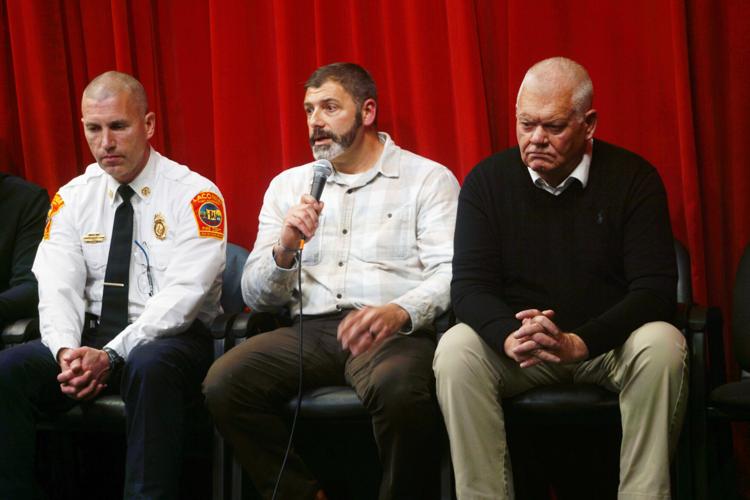

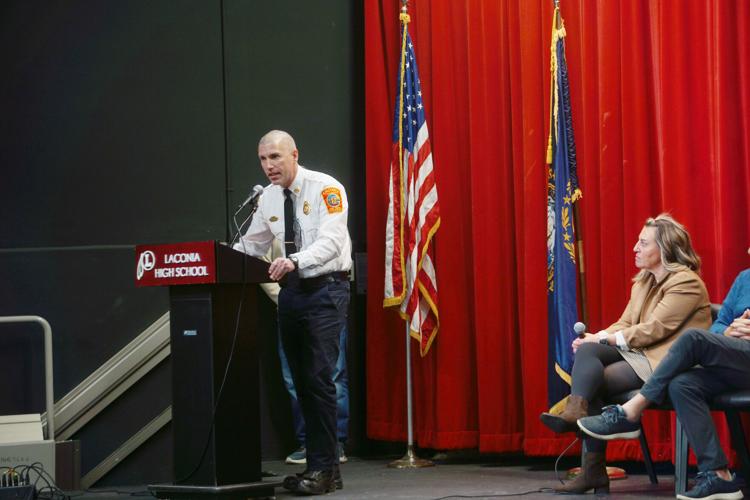
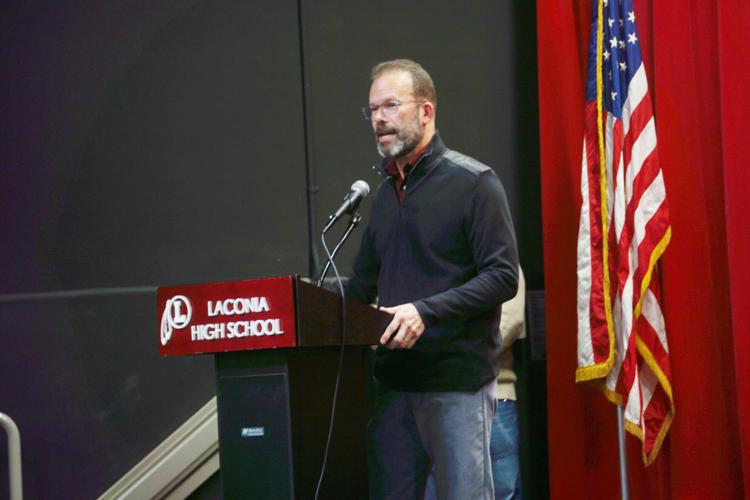
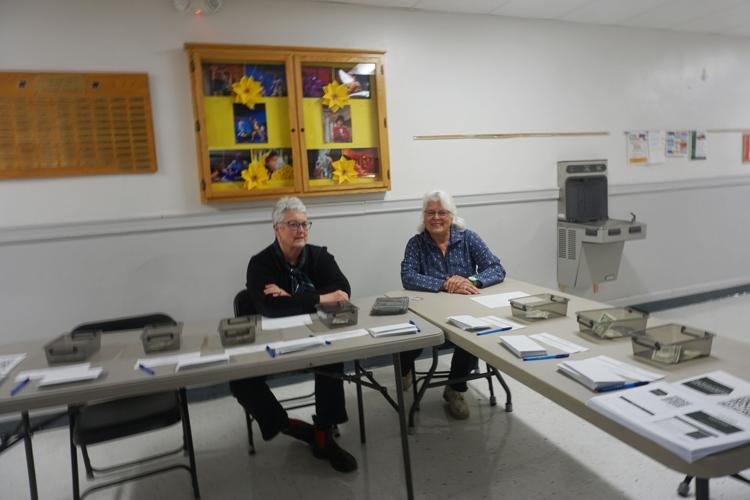
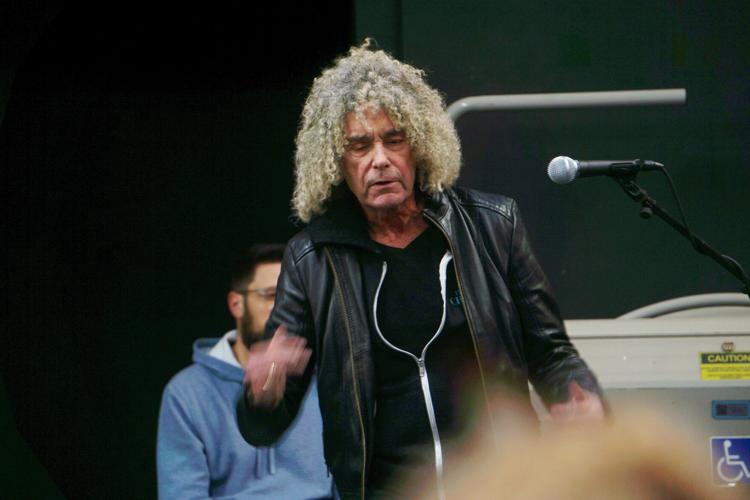
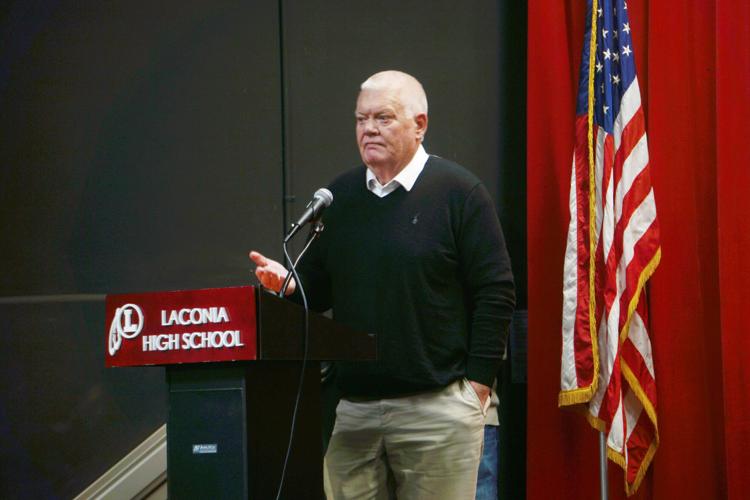
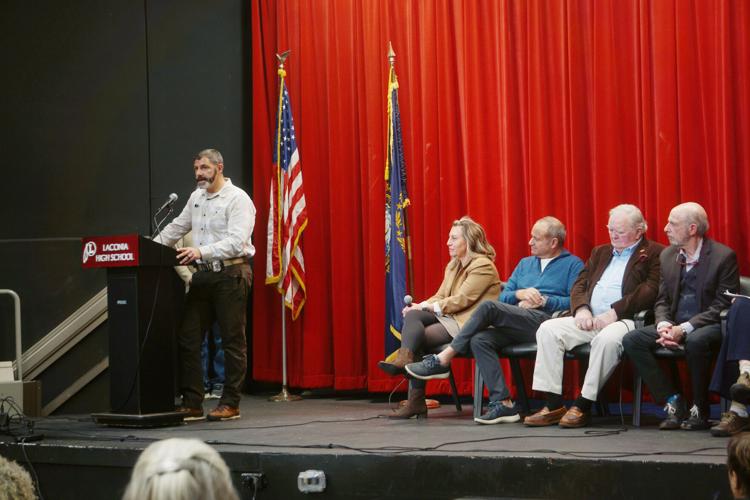











(1) comment
The homeless problem is unsolvable. The mental health problem among the homeless is unsolvable, and the addiction to drugs among the homeless is insurmountable.
You cannot house them, you cannot feed them any services for drugs or mental health would cost a fortune. You can talk about forever, sadly, there is no solution. Just talk. no nouns or verbs
Welcome to the discussion.
Log In
Keep it Clean. Please avoid obscene, vulgar, lewd, racist or sexually-oriented language.
PLEASE TURN OFF YOUR CAPS LOCK.
Don't Threaten. Threats of harming another person will not be tolerated.
Be Truthful. Don't knowingly lie about anyone or anything.
Be Nice. No racism, sexism or any sort of -ism that is degrading to another person.
Be Proactive. Use the 'Report' link on each comment to let us know of abusive posts.
Share with Us. We'd love to hear eyewitness accounts, the history behind an article.